STSM
Short-term scientific missions (STSM)
Short-term scientific mission (STSM) consists in a visit of a host organization located anywhere in the world by a Researcher or Innovator for the specific work to be carried out and for a determined period of time. The country must be different from the country of affiliation, The visit can also be performed in a Specific Organization (i.e. the European Commission, EU bodies, offices and agencies, the European RTD Organisations and International Organisations). A grant is awarded by the Grant Awarding Coordinator to an individual for supporting physical mobility aiming at capacity building and transfer of knowledge through bilateral/multilateral collaborations during a research stay in a different country.
Further details on the application procedure for an STSM with EuroMicropH can be found below.
Call for Applications 2022-2023 (closed)
Short Term Scientific Missions (STSMs) are an important part of the COST Action CA18113 “Understanding and exploiting the impacts of low pH on microorganisms”, funded by COST European Cooperation in Science and Technology. The Action aims to establish a European network of scientists-experts and young researchers studying and exploiting the responses of microorganisms to low pH.
Short-Term Scientific Missions (STSM) allow scientists to conduct short research visits to an institution or laboratory anywhere in the world in order to strengthen the existing networks and to foster scientific collaboration, to learn a new method/technique not available in their own institution and to contribute to the scientific goals of the Action.
The COST Action CA18113 has six working groups (WGs) covering many aspects of industrial biotechnology and bio-processing, and clinical and veterinary treatment of infections in a time of increasing antimicrobial resistance. Therefore, STSMs are considered a great opportunity for applicants to focus their work on understanding of the details of how microorganisms detect and respond to low pH.
These research interests are highlighted by WGs (see the Action Web) but applicants can introduce novel ideas in light of the COST Action CA18113 Goals.
Those interested in submitting an application should consult the COST Action CA18113 STSM Guidelines for details about eligibility, criteria for evaluation of applications/proposals and how to apply on-line, and funding.
Action participants are also encouraged to announce potential research topics and their readiness to accept applicants.
Grant Period: This Call covers the grant period 1st November 2022–16th October 2023. Approved STSM should be completed approximately one month before the end of the Action, i.e. 16th September 2023.
Contacts and information:
STMS Coordinator: Ricardo Santos, ;
STMS Vice-Coordinator: Fatih Ozogul,
MC Chair: Daniela de Biase, ;
MC Vice-Chair: Peter Lund, ;
On-line application: www.cost.eu/STSM
Finished STSMs
You have completed an STSM funded by EuroMicropH, please enter the following information here.
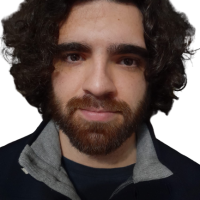
João Alves; University of Minho, Spain; hosted by Prof. Michael Sauer, the University of Natural Resources and Applied Life Sciences, Vienna, Austria
This STSM gave me the chance to gain hands-on experience with new techniques, access unique equipment and data, and develop new collaborations and networks. The outputs from this STSM include a scientific publication currently under revision.
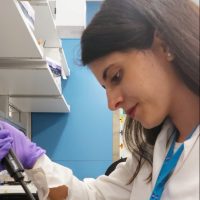
Débora Cerdá Bernad; Miguel Hernández University of Elche, Spain; hosted by Dr. Caroline Thum, AgResearch, Palmerston North, New Zealand
As a young researcher, to carry out this STSM was a great professional opportunity, since it allowed me to learn new techniques, methodologies, and ways of working to apply throughout my professional and research career, in addition to expand the network of collaborations with new research groups.
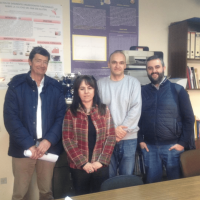
Miroslav Ducic; University of Novi Sad, Faculty of Agriculture, Serbia; hosted by Prof. Miguel Prieto, University of Leon, Institute of Food Science and Technology, Spain
STSM grant helped me to restart my career and to get familiar with high pressure processing of food as a novel technology.
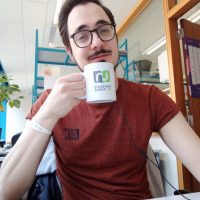
Fabio Giovannercole; University of Namur, Belgium; hosted by Prof. Daniela De Biase, Sapienza University of Rome, Italy
Thanks to the STSM grant I could reconnect with Prof. De Biase. Together, we analysed and interpreted some omics data, and we finalized a research paper that we will soon submit for publication.
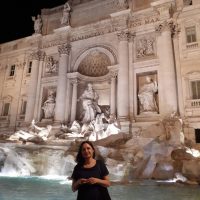
Brankica Lakićević; Institute of Meat Hygiene and Technology, Republic of Serbia; hosted by Prof. Daniela De Biase, Sapienza University of Rome, Italy
During a three-day stay in the Dpt of Medico-Surgical Sciences and Biotechnologies, Prof. De Biase and I finalized the manuscript entitled: "The Landscape of Resistance, Persistence and Virulence Genes Among Listeria monocytogenes strains". Also, the hosting team introduced me to methods and protocols related to testing acid resistance. Great experience! I recommend it to everyone!
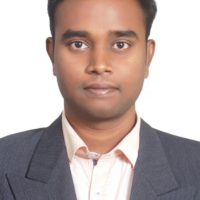
Mohanakrishnan Logan; National University of Ireland Galway, Ireland; hosted by Dr. Zeynep Cetecioglu Gurol, KTH Royal Institute of Technology, Sweden
During my stay at the bioconversion group in KTH Stockholm, we investigated different strategies to enhance the production of green chemicals (volatile fatty acids) and green products (selenium quantum dots) simultaneously.
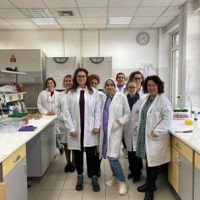
Samah Mechmechani; University of Lille, France; hosted Dr. Agapi Doulgeraki, Institute of Technology of Agricultural Products - Hellenic Agricultural Organization – DIMITRA, Athens, Greece
In this STSM, we were able to explore the differences in resistance between planktonic cells, biofilm and biofilm-detached cells without EPS matrix of S. aureus strain when exposed to low pH treatment and to microencapsulated carvacrol combined with low pH. A collaborative publication will be the result of this STSM.
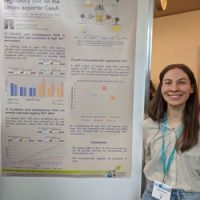
Aline Reinfurt; ACIB GmbH / TU Wien, Austria; hosted by Prof. Levente Karaffa, University of Debrecen, Hungary
The STSM was a great experience where I learned a lot about A. niger cultivations. I was able to conduct several important experiments together with Prof. Karaffa’s PhD students which will contribute to our joined publication (in progress).
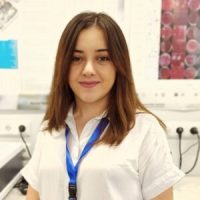
Liana Vanyan; Yerevan State University, Armenia; hosted by Dr. Adam Cenian, The Szewalski Institute of Fluid-Flow Machinery, Poland
The STSM brought a new experience. Possibilities for using spent coffee grounds and alcohol waste by anaerobic digestion for biogas and biohydrogen production were investigated. The results obtained indicate that acidic hydrolysis treatment was important for biohydrogen, but not for biogas production. STSM was irreparable experience and new methodological skills and knowledge were obtained.
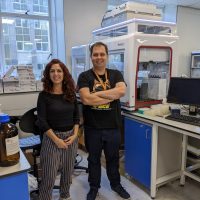
Ana Vila-Santa; Instituto Superior Técnico, Lisbon, Portugal; hosted by Prof. Peter Lund, University of Birmingham, UK
Thanks to an STSM at Lund's lab it was possible for me to learn TRADIS library preparation and analysis, with hands-on experience. The implementation at Mira's lab will help us identify new genetic determinants mediating different aspects relevant for the physiology of probiotic lactobacilli.
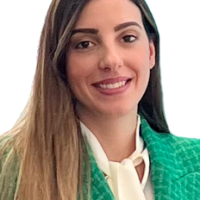
Jina Yammine; INRAE, Villeneuve d'Ascq, France; hosted Dr. Agapi Doulgeraki, Institute of Technology of Agricultural Products - Hellenic Agricultural Organization – DIMITRA, Athens, Greece
My STSM went beyond my expectations! It was a very fruitful experience on both the professional and personal levels. I have learnt a lot during my stay at the host institution. Definitely recommend for each researcher who is curious about the impact of low pH on microorganisms.
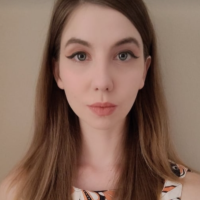
Paulina J. Wójtowicz, University of Warsaw, Poland; hosted by Prof. Daniela De Biase, Sapienza University of Rome, Italy
An amazing experience - fulfilling and rewarding, in one month I had learnt a year lot of science, interpersonal relations and self-awareness.
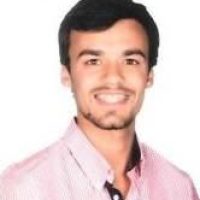
Luis Ferraz, University of Milano Bicocca, Italy; hosted by Prof. Michael Sauer, BOKU University of Natural Resources and Applied Life Sciences, Vienna, Austria
Great experience. Learned new techniques. Results obtained were published
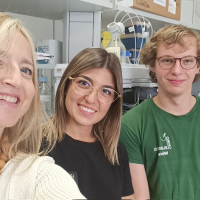
Quinten Goessaert, KU Leuven, Belgium; hosted by Prof. Daniela De Biase, Sapienza University of Rome, Italy
The STSM not only produced intriguing results, but it was also a wonderful learning experience and gave me better insight in the subject. Additionally the STSM encouraged the further collaboration in the short- and long-term.
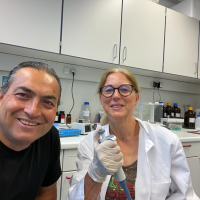
Fatih Ozogul, Cukurova University, Faculty of Fisheries, Department of Seafood Processing Technology, Turkey; hosted by Prof. Tuba Esatbeyoglu, Gottfried Wilhelm Leibniz University Hannover, Institute of Food Science and Human Nutrition, Hannover, Germany
With this STSM, a fermented beverage using water kefir and by-products from Aronia melanocarpa juice and pomace (by-products of juice production) was developed. The STSM covered a practical training at the hosting institution. All the activities achieved the planned goals and expected outcomes, including specific contribution to the scope of the related WGs of the COST Action and a publication in Food Chemistry: X.
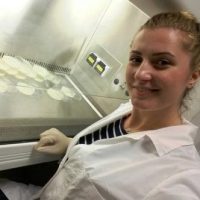
Styliani Roufou, University of Malta, Malta; hosted by Prof. Charalampos Proestos, University of Athens, Greece
STSM offered a unique experience in studying the growth of genes involved in the GAD system of Escherichia coli at different pH values and temperatures. The established fluorescence method was used to detect the microbial reactions in the culture medium using a microplate reader. The results underlined the importance of certain genes, such as rpoS, for bacterial survival under pH stress conditions. The experience gained during the STSM was invaluable and led to the acquisition of new methodological skills and knowledge by the host team. A great experience! I recommend it to everyone!
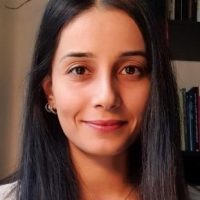
Merve Atasoy, KTH Royal Institute of Technology, Sweden. She was hosted by Dr Günther Bochmann, The University of Natural Resources and Life Sciences, Vienna, Austria.
As a PhD candidate, the STSM program provided an excellent opportunity to broaden my academic network. Thanks to this program, I was able to find a suitable host institute to apply for the FWF Lise-Meitner Program.